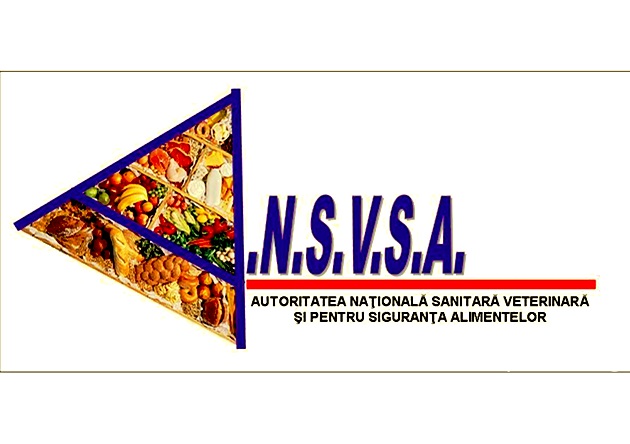1349

ANSVSA Launches Nationwide Inspections Ahead of Easter Holidays 2025
In the run-up to the 2025 Easter Holidays, the National Sanitary Veterinary and Food Safety Authority (ANSVSA) will carry out nationwide inspections to prevent foodborne illnesses and ensure the safety of food products intended for consumers.
These inspections will be conducted by veterinary inspectors from the County Sanitary Veterinary and Food Safety Directorates (DSVSA) and official sanitary veterinary offices (CSVSAO).
Inspection Objectives:
- Ensuring compliance with food safety regulations in agri-food markets, slaughterhouses, temporary slaughter centers, meat cutting, processing and storage units, as well as in retail outlets (butcher shops, restaurants, confectioneries, hypermarkets, etc.).
- Monitoring the transport and slaughter of lambs, in line with animal welfare and food safety standards.
- Controlling the transportation and sale of animal-origin food products (meat, eggs, milk, fish, etc.).
Inspection Period:
The inspections will take place from March 19 to April 19, 2025, ahead of both Catholic and Orthodox Easter holidays.
During this period, DSVSA and CSVSAO offices will ensure permanent availability, including weekends. Consumers may report any food safety irregularities by calling the phone numbers displayed at DSVSA and CSVSAO headquarters or listed on their official websites.
Specific Measures:
Lamb Slaughter:
- Allowed only in authorized slaughterhouses or temporarily approved slaughter centers, following hygiene and animal welfare standards.
- Lamb transport will be checked by DSVSA inspectors and Police officers to ensure compliance with veterinary health requirements.
- Temporary slaughter centers will operate April 9–19, 2025, between 7:00 AM – 5:00 PM.
- In areas under restrictions due to African Swine Fever (ASF) or scrapie, additional risk assessments will apply to lamb transport and slaughter.
Lamb Meat:
- May be sold only with a valid veterinary health certificate and proper labeling.
- Meat from temporary slaughter centers can only be sold directly to consumers, not to other food businesses.
- Meat transport and storage must comply with hygiene and temperature control standards.
- Meat from temporary centers will be stamped with a 3.5 cm round mark, including the county code and a numeric identifier issued by DSVSA.
Eggs and Egg Products:
- Must be sold only in authorized units, and producers must be registered with veterinary health authorities.
- Transport must be carried out using authorized vehicles, ensuring proper temperature and hygiene.
- Eggs must be legally marked and subject to candling (ovoscopic examination).
- Eggs with cracked or damaged shells will be removed from sale and sent to neutralization facilities.
Milk and Dairy Products:
- Raw milk for sale must come from healthy animals raised on farms authorized by veterinary health authorities.
- Cheese and other dairy products must be sold in hygienic spaces, protected from contamination.
- Products must be labeled with information on the product, producer, date of production, and production site.
- Packaging must ensure traceability and meet hygiene requirements.
Fish and Fishery Products:
- Sales are permitted only in units registered with veterinary health authorities.
- Products must be stored at appropriate temperatures and labeled correctly.
- Inspections will ensure fish and fishery products meet sensory (organoleptic) quality standards and are free from visible parasites.
- Ice used to preserve fish must be made from potable water and maintained throughout the sales period.
Other Traditional Products (e.g., sweet bread, cakes, seasonal vegetables):
- Must be sold only in authorized spaces under veterinary health supervision.
- Products must be properly packaged to protect against contamination.
Measures to Prevent Animal Disease Spread:
To prevent the spread of African Swine Fever (ASF), Peste des Petits Ruminants (PPR), and Foot-and-Mouth Disease (FMD), controls will be intensified on the transport of live animals and animal-origin products.
Animal transport and movement will be strictly monitored, and in case of outbreaks, quarantine and movement restrictions will be imposed.
Veterinary inspectors, in collaboration with local authorities and law enforcement, will carry out road checks to ensure compliance with animal transport regulations.
Inter-Agency Cooperation:
For greater efficiency, ANSVSA will work alongside local and national institutions (Municipalities, County Councils, ANAF, ANPC, Ministry of Health, etc.) to organize joint inspection and control actions.
Sanctions for Non-Compliance:
In case of violations of veterinary health regulations, measures may include suspension of activities, application of sanctions, and confiscation of products posing a risk to public health.
ANSVSA urges consumers to purchase food only from authorized sources and to check for official safety markings to ensure food safety.
The results of these control actions will be made public through press releases issued by ANSVSA and available on the institution's official website.
Reminder: Consumers can report food safety irregularities by calling ANSVSA’s free hotline at 0800 826 787, available from any telephone network.





